Bass fish are among the most popular freshwater and saltwater fish species for sport fishing and culinary purposes. Do you eat bass fish? There is ongoing debate over whether bass should be eaten due to their taste, potential contaminants, and ethical fishing concerns.
We will explore the types of bass, their edibility, health considerations, preparation methods, and ethical fishing guidelines to help you determine whether you should eat bass fish.
Common Types of Bass
There are several species of bass found in both freshwater and saltwater environments, each with unique characteristics and habitats. Some bass are prized for sport fishing while others are valued for their taste.
Freshwater Bass
- Largemouth Bass (Micropterus salmoides)– One of the most popular game fish, found in lakes, rivers, and ponds across North America. Known for its aggressive strikes and powerful fights, making it a favorite among anglers.
- Smallmouth Bass (Micropterus dolomieu)– Prefers clear, rocky streams and lakes with cooler water. It is known for its acrobatic jumps and is often considered a more challenging catch than the largemouth bass.
- Spotted Bass (Micropterus punctulatus)– Often confused with smallmouth bass, but has a slightly different body shape and thrives in deeper, faster-moving waters. It is more tolerant of varying water conditions.
- Striped Bass (Morone saxatilis)– A migratory species found in both freshwater and saltwater. Anglers highly sought after it due to its large size, strong fight, and excellent table quality. Striped bass are often stocked in reservoirs and rivers for sport fishing.
Saltwater Bass
- Black Sea Bass (Centropristis striata)– A highly sought-after culinary fish found along the Atlantic coast, particularly in deeper offshore waters. Known for its firm, white, and mildly sweet flesh, making it a favorite for grilling and frying. Black sea bass populations are carefully managed to prevent overfishing.
- White Bass (Morone chrysops)– Though technically a freshwater species, it is often associated with its saltwater relatives due to its migratory nature. It is commonly found in large reservoirs and rivers, where it forms massive schools. White bass are aggressive feeders and provide an exciting challenge for anglers.
- Rock Bass (Ambloplites rupestris)– A freshwater species that occasionally ventures into brackish waters. Often mistaken for other bass species, it is smaller in size but highly adaptable. While not as popular for eating, it is still a fun catch for casual anglers.
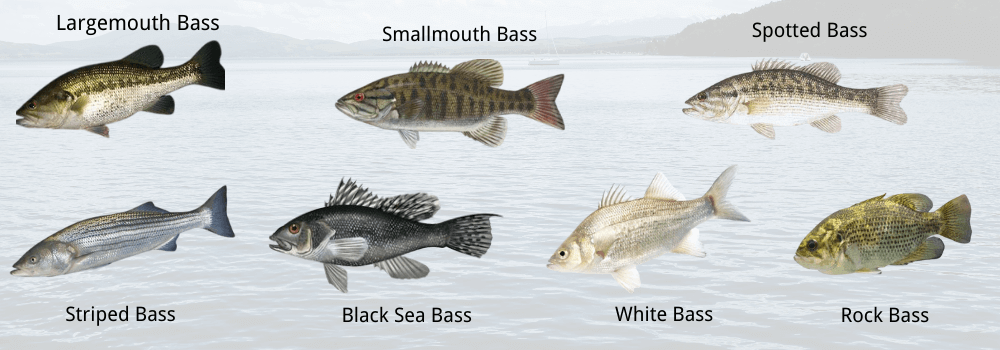
Which Types of Bass Fish Are Edible?
While most bass species are technically edible, some are more commonly consumed than others. Striped bass, black sea bass, and white bass are widely considered delicious and are frequently found in seafood markets. Largemouth bass and smallmouth bass are also edible but have a reputation for a muddier taste.
Health and Safety: Can You Eat Bass?
Can You Eat Bass?
Yes, bass can be eaten, but certain precautions should be taken. Some bass species accumulate environmental contaminants such as mercury and PCBs (polychlorinated biphenyls), especially those from polluted waters. It is essential to check local advisories before consuming bass from specific areas.
What Is a Good Consumption Limit for Eating Bass?
The general recommendation for fish consumption varies based on contamination levels:
- Adults: 1-2 servings per month for larger bass species due to mercury concerns.
- Children & Pregnant Women: Should limit or avoid consuming bass, particularly those caught in polluted waters.
- Striped Bass & Black Sea Bass: Safer options that can be eaten more frequently.
What Are the Nutritional Benefits of Eating Bass?
Bass fish provide several health benefits, including:
- High in Protein: Essential for muscle growth and repair.
- Rich in Omega-3 Fatty Acids: Supports heart and brain health.
- Low in Saturated Fat: Good for maintaining a balanced diet.
- Packed with Vitamins & Minerals: Such as Vitamin D, B12, and selenium.
Does Bass Taste Good?
When it comes to the taste of bass, we’ve had our fair share of experiences – it really depends on the species and how you prepare it.
For example, Black Sea Bass and Striped Bass are definitely a go-to favorite. They have this mild, slightly sweet flavor with a flaky texture that makes them a delight on the grill or in a nice fish taco.
On the other hand, Largemouth Bass can sometimes have an earthy, muddy taste, especially if they come from stagnant waters.
Then, there is the smallmouth bass, which most people really enjoy. It has a firmer texture and a cleaner taste compared to largemouth bass. Overall, we think bass can be delicious, but a lot depends on where it’s caught and how you cook it!
- Black Sea Bass & Striped Bass: They have a mild, slightly sweet, and flaky texture, making them popular culinary choices.
- Largemouth Bass: Earthier and sometimes muddy-tasting, especially if caught in stagnant water.
- Smallmouth Bass: A firmer, cleaner taste compared to largemouth bass.
Controversy Around Eating Bass: Yes or No
Bass fishing is a popular sport worldwide, with millions of anglers catching largemouth and smallmouth bass for recreation.
However, while many fish species are caught for food, bass consumption remains a controversial topic. Some people enjoy eating bass, while others strongly oppose it. But why is there a debate over eating a perfectly edible fish?
Is Bass an Edible Fish?
As we said before, bass is edible, and many people do eat it. Largemouth and smallmouth bass are both freshwater species commonly found in North America. They have a firm, white flesh that some describe as mild and flaky, while others say it has a slightly fishy or muddy taste, depending on where it was caught.
However, despite being edible, bass is not as commonly eaten as other fish like trout, walleye, or catfish.
Why Do Some People Avoid Eating Bass?
Several reasons contribute to the controversy around eating bass:
1. Bass as a Sport Fish
Bass fishing is a major industry, particularly in the United States. Many anglers practice “catch and release” to help sustain fish populations and maintain a thriving sport. Bass tournaments, fishing guides, and even entire economies in certain areas rely on the continued existence of large, healthy bass populations. Because of this, some fishing communities frown upon keeping bass for food.
2. Taste and Texture Concerns
While some people enjoy eating bass, others find its flavor less appealing than other freshwater fish. The taste of bass can be affected by its environment—bass caught in muddy or weedy waters may have a stronger, earthier taste. Some prefer fish with a milder flavor, like perch or walleye, over bass.
3. Conservation and Population Concerns
In certain lakes and rivers, bass populations are carefully managed to ensure a balanced ecosystem. Overharvesting bass, especially larger ones, can impact breeding patterns and reduce future fish stocks. Some anglers argue that keeping and eating bass, particularly large, mature fish, harms the ecosystem and makes fishing worse for future generations.
4. Cultural and Ethical Views
For many dedicated anglers, bass fishing is more about the sport than the food. Catching a bass, photographing it, and releasing it unharmed is seen as a responsible and respectful way to enjoy fishing. Some even compare eating bass to eating a pet, arguing that since bass are often pursued for sport rather than sustenance, they should be released rather than eaten.
5. Local Regulations and Guidelines
Some regions have strict fishing regulations regarding bass. While catch limits and size restrictions are common, certain areas even have “catch and release only” rules to protect bass populations. Anglers who keep bass where it is discouraged or restricted may face criticism from fellow fishers or even legal consequences.
Should You Eat Bass?
The decision to eat bass ultimately depends on personal preference, local regulations, and ethical considerations.If you enjoy the taste of bass and it’s legal to keep them in your area, there’s no reason not to eat them.
However, responsible harvesting is key—keeping smaller fish while releasing larger breeders can help maintain healthy populations.
For those who prefer other fish or respect the catch-and-release culture, there are plenty of alternatives to bass for a tasty meal. At the end of the day, whether to eat bass or let it swim free is a debate that continues to divide the fishing community.
How to Prepare and Cook Bass?
How to Prepare Them for Cooking?
Proper preparation is essential for enhancing the flavor and texture of bass. Follow these steps for the best results:
- Fillet the Fish: Remove scales with a fish scaler or the back of a knife, then carefully cut fillets away from the bones to ensure a clean and boneless cut. Check more: Easy Guide to Fish Clean.
- Remove the Dark Meat: Some bass species, like largemouth bass, have a dark lateral line that can contribute to a strong, fishy flavor. Trimming this off improves the taste.
- Soak in Milk or Lemon Water: A 30-minute soak in milk or a lemon-water mixture helps neutralize any muddy or fishy taste, especially in largemouth bass.
How to Get Rid of Its Muddy Taste?
- Bleed the Fish Immediately: After catching the bass, bleeding it quickly by cutting the gills ensures better flavor and firmer meat.
- Soak in Saltwater: A saltwater brine draws out impurities and enhances the natural flavors.
- Marinate with Lemon or Vinegar: A citrus-based marinade not only tenderizes the meat but also eliminates any lingering off-flavors.
What Is the Best Cooking Method?
- Grilled or Baked: Ideal for larger bass like striped bass, as it retains moisture while allowing flavors to develop.
- Fried: This works well for smaller bass with firmer meat, offering a crispy texture.
- Pan-Seared: Locks in moisture while creating a flavorful, golden-brown crust.
Ethical Fishing Considerations
Regulations Set for Bass Fishing
Fishing regulations vary by state and are designed to maintain sustainable bass populations. Some states impose strict seasonal restrictions, while others have minimum and maximum size limits to protect juvenile and breeding fish.
Additionally, certain regions enforce daily bag limits, allowing only a specific number of bass per angler per day. Always check local regulations before fishing.
Can You Keep the Bass Fish?
Many states promote catch-and-release policies to conserve bass populations, especially for trophy-sized fish. However, if the local regulations permit keeping bass, following legal size and bag limits is essential. Ethical anglers should also practice selective harvesting, keeping only the fish they intend to eat while releasing the rest.
What Is the Best Way to Catch Freshwater Bass?
When it comes to fishing for bass, using the right bait can make all the difference. Live bait, like minnows, shiners, and worms, has proven to be highly effective. They mimic the natural prey that bass are used to, making them irresistible.
But most people also love experimenting with artificial lures. Crankbaits, topwater lures, and soft plastics are fantastic options because they imitate injured fish, which can really trigger aggressive strikes from bass.
Timing is everything in bass fishing, too. We’ve found that the early morning and late evening hours provide the best chances for a successful catch. During these cooler periods, bass are much more active and on the hunt for food.
Overcast days and pre-storm conditions can also boost their feeding activity, so try to plan your trips around those times. Overall, a combination of the right bait and timing can lead to some fantastic days on the water!
- Using Live Bait: Minnows, shiners, and worms are highly effective, mimicking natural prey.
- Artificial Lures: Crankbaits, topwater lures, and soft plastics imitate injured fish, attracting aggressive bass.
- Best Time to Fish: Early morning and late evening provide the highest success rates, as bass are most active during these cooler periods. Overcast days and pre-storm conditions can also increase feeding activity.
Conclusion
So, do you eat bass fish? While bass are edible and nutritious, various factors influence whether people choose to consume them. The controversy around eating bass is shaped by conservation efforts, taste preferences, and regional fishing regulations.
If you do decide to eat bass, proper preparation and cooking techniques can enhance their flavor. Always follow local advisories to ensure safe consumption while practicing ethical fishing to maintain healthy bass populations for future generations.
You May Also Like:
- Do Smallmouth Bass Have Red Eyes?
- How Big Is a 2 Pound Bass?
- Fishing For Smallmouth Bass In Winter
- Guide On Jig Fishing For Trout
- Can You Taxidermy a Fish?


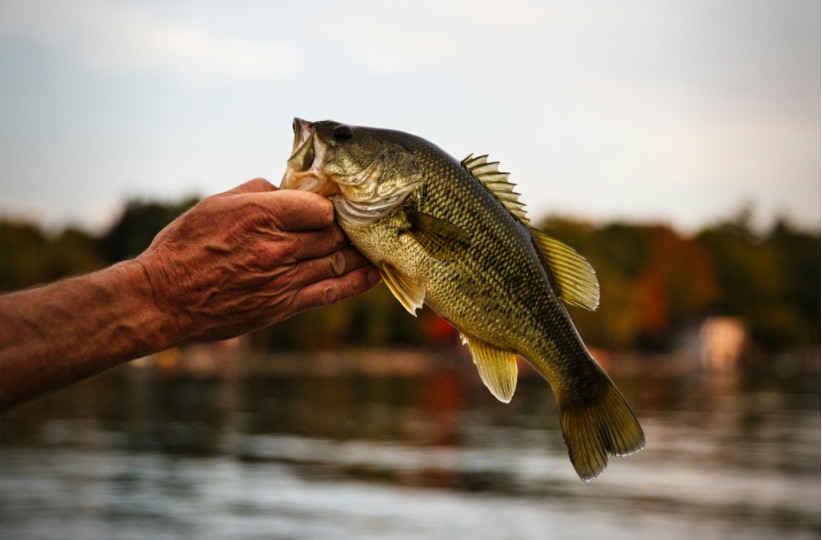
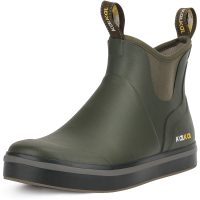








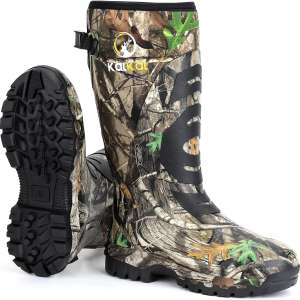

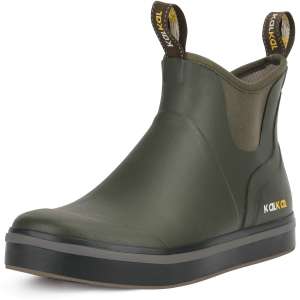
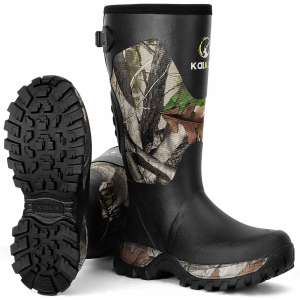




Leave a reply